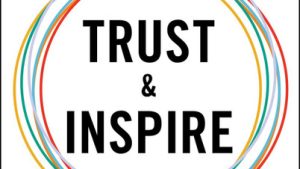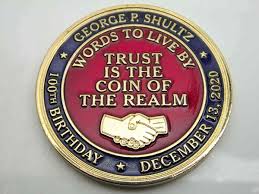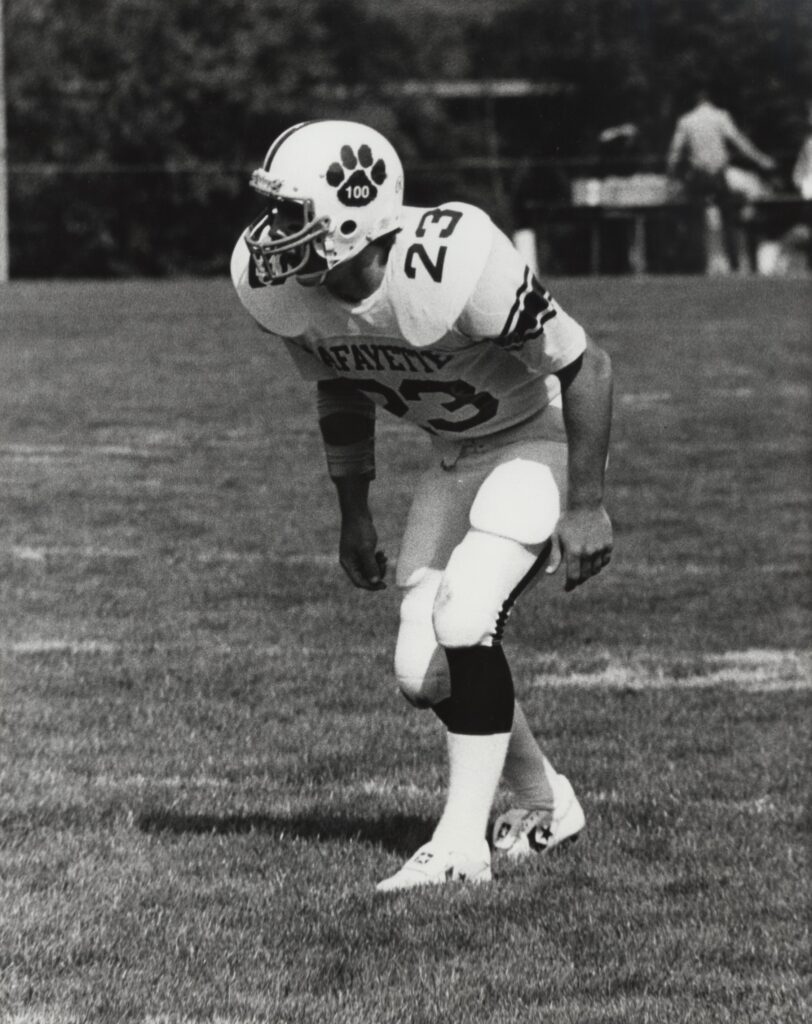
Having a 40+ year career, I have had my share of bosses. Recently I have been reflecting on them and ranked them in terms of effective leadership. Around the same time, I read an article about Stephen M.R. Covey’s book, Trust & Inspire: How Truly Great Leaders Unleash Greatness in Other.
In this excellent book, Covey compares what he calls the “Trust & Inspire” model against the “Command & Control” model. The T&I model is about “connecting with people, through caring and belonging, so that we—and they—can successfully respond to our disruptive world. It’s about then connecting people to purpose, so they feel inspired not only by an organization’s leaders, but also by a sense of purpose, meaning, and contribution in their work.” While the C&C model is where leaders “leverage the resources and people at their disposal to accomplish the task at hand.” It is about getting things done, with little regard for the potential of the people who get those things done.
Needless to say, when I look at my list of bosses, my best bosses were T&I followers and those at the bottom where advocates of the C&C philosophy. Plus, one of my best and most successful work experiences was running a division by leading a team from the perspective of trust and inspiration. The team was fully capable of great things; they just needed belief, confidence, and encouragement – plus a few barriers broken down.
Trust and Inspire Leadership is transformational. The focus is on building relationships; developing capabilities; empowering people to make their own decisions and doing it right. It is mentor based. It reaps heartfelt commitment that is freely and enthusiastically given, worlds apart from compliance. It leads to a higher level of engagement and innovation while creating far greater outcomes.
Command and Control Leadership is transactional. The focus is on position and power; finishing the job; getting the deal; adherence to rules and doing it fast. It is fear based. It stifles innovation, discourages creativity, leads to feelings of disempowerment and resentment. Command and Control leaders may get compliance, but typically not much more.
No doubt that in the military, as well as emergency response settings, command and control can be an effective leadership style. There are times when a hierarchical structure for efficient decision-making and clear direction is required. However, the irony is that in most situations Trust and Inspire is the far more enduring and efficient approach. Go slow to go fast.
This contrast carries beyond business. It applies to Coaching, Parenting, Volunteering, and even Neighboring. I have seen firsthand many High School football and Youth coaches working to control all elements of a game to influence the outcome, losing sight of their lack of trust and inspiration in the players. I saw a 10-year-old girl taken out of a soccer match when it became a one goal game with 5-minutes left to play. She knew why the Command & Control coach took her out. How much better would it be if the coach trusted and inspired her to be focused, play smart, and be resilient.
Recently I had a conversation with a fellow Granddad about supporting our granddaughters. The conversation centered on building trust in both directions and creating inspiration. Supporting their efforts and trusting them to make good decisions. Spending time mentoring and not micromanaging. Let things play out as opposed to maintaining control of the situation.
It is my opinion that Government officials operate from a Command-and-Control perspective more than they ever had and with little thought of trusting or inspiring – each other or the public. The focus is on position, power, and staying in power at all costs. The emphasis today is on compliance and leadership is fear based. There is a tremendous feeling of disempowerment and resentment.
Trust is a two-way street and the people’s faith in Government is corroded. The democratic process is deteriorating. The desire to want, and leverage, issues is greater than the desire to find a solution. There is an ever-present climate of distrust at home and abroad. The University of Michigan’s Ford School tracks public trust in the government. From a high near 80 percent in the 1960s, such trust is currently below 30 percent.

American statesman George Shultz’s famous maxim, “Trust is the coin of the realm,” refers to the importance of credibility in all human interactions, especially in government, diplomacy, and politics. The phrase emphasizes that trust, not money or power, is the most valuable currency for making things happen and achieving successful outcomes.
How do we trust and inspire our neighbors? How do we trust and inspire the next generation? Empathetic listening is a big piece of Trust and Inspire. The essence of empathetic listening is we fully understand, emotionally and intellectually. Empathetic listening improves mutual perception and a clearer understanding of expectations which builds relationships and creates trust. We identify with the speaker and put ourselves in their place instead of projecting and assuming our own thoughts and motives. We allow others to be understood, respected, and valued. We maintain, or possibly regain, their trust. We respect their abilities and trust their judgment, let them decide what is best. Autonomy is a welcome freedom and is a gift anyone can give.
“Few things can help an individual more than to place responsibility on him, and to let him know that you trust him.” -Booker T. Washington
God transitioned from a law-centered relationship of the Old Testament to one based on grace and trust of the New Testament. The Law, given through Moses, was critical in establishing God’s standards defined by commandments and regulations to teach or discipline His people. But with the coming of Jesus Christ, there was a pivotal shift to a relationship grounded in grace, love, and trust – God’s ultimate goal for His relationship with humanity.
Jesus did not merely command His followers; He inspired them, trusted them, and empowered them through the Holy Spirit to continue His mission. He connected them to a higher purpose—the Kingdom of God—offering a mission far more meaningful than any earthly reward. Today, He still embodies the “Trust and Inspire” leadership model through His example of selfless service, empowerment of his followers, and unwavering trust in God’s divine plan. Jesus’ leadership is transformational. It is mentor based. He inspires heartfelt commitment rather than mere compliance.
We were created with an innate need to be loved and to love, to be served and to serve, to be trusted and to trust. In a day when such trust is in short supply, we have a God-given opportunity to demonstrate the relevance of our faith in action.




